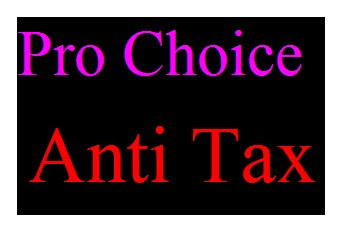Bio Fuels - Starve The Poor So The Rich Can Feel Good
Bio Fuels may be good for corn growers, but they are bad for corn eaters.
Policymakers and legislators often fail to consider the law of unintended consequences. The latest example is their attempt to reduce the United States' dependence on imported oil by shifting a big share of the nation's largest crop – corn – to the production of ethanol for fueling automobiles.Which is always a danger when you use command and control methods (government) to solve what is essentially a market problem. Balance is lost.
Good goal, bad policy. In fact, ethanol will do little to reduce the large percentage of our fuel that is imported (more than 60 percent), and the ethanol policy will have ripple effects on other markets. Corn farmers and ethanol refiners are ecstatic about the ethanol boom and are enjoying the windfall of artificially enhanced demand. But it will be an expensive and dangerous experiment for the rest of us.
Markets are organic. Command and control is like adding fertilizer to the soil. The right amount can help. Too much and the plant dies.
On Capitol Hill, the Senate is debating legislation that would further expand corn ethanol production. A 2005 law already mandates production of 7.5 billion gallons by 2012, about 5 percent of the projected gasoline use at that time. These biofuel goals are propped up by a generous federal subsidy of 51 cents a gallon for blending ethanol into gasoline and a tariff of 54 cents a gallon on most imported ethanol to help keep out cheap imports from Brazil.How about that! It amounts to taking better than 35% of the world's corn supply out of the human food chain.
President Bush has set a target of replacing 15 percent of domestic gasoline use with biofuels (ethanol and biodiesel) during the next 10 years, which would require almost a fivefold increase in mandatory biofuel use, to about 35 billion gallons. With current technology, almost all of this biofuel would have to come from corn because there is no feasible alternative. However, achieving the 15 percent goal would require the entire current US corn crop, which represents a whopping 40 percent of the world's corn supply. This would do more than create mere market distortions; the irresistible pressure to divert corn from food to fuel would create unprecedented turmoil.
Thus, it is no surprise that the price of corn has doubled in the past year – from $2 to $4 a bushel. We are already seeing upward pressure on food prices as the demand for ethanol boosts the demand for corn. Until the recent ethanol boom, more than 60 percent of the annual US corn harvest was fed domestically to cattle, hogs, and chickens or used in food or beverages. Thousands of food items contain corn or corn byproducts. In Mexico, where corn is a staple food, the price of tortillas has skyrocketed because US corn has been diverted to ethanol production.Mexicans are going hungry so American Greens can feel good about their oil consumption. I wonder what effect that will have on our illegal immigration problem? We all want to help the environment. The moral question is: should we make the poor of the world suffer so greenies can feel good?
What we need is some alternative crop such as switch grass or even trees that will not take crops out of production. The problem with such non food crops is that at the present time there is no good way to convert cellulose to ethanol. There are micro-organisms that scientist are working on to make the process economically viable. We are not there yet. In the mean time what should be done?
American legislators and policymakers seem oblivious to the scientific and economic realities of ethanol production. Brazil and other major sugar cane-producing nations enjoy significant advantages over the US in producing ethanol, including ample agricultural land, warm climates amenable to vast plantations, and on-site distilleries that can process cane immediately after harvest.However there is a domestic tariff of 54¢ a gallon on imported ethanol to prop up American corn prices and corn producers. What we are seeing is what happens when governments interfere with the organic adaptations that markets provide. If we are going to mandate ethanol fuels we should at least allow all suppliers into the market on an equal footing. Then the low cost producer wins the day, rather than the most politically connected producer.
Thus, in the absence of cost-effective, domestically available sources for producing ethanol, rather than using corn, it would make far more sense to import ethanol from Brazil and other countries that can produce it efficiently.
Oh, well.
We see this so often. When two government agents get together you can figure the intelligence of their proposal by subtracting the IQ of the less smart from the IQ of the most smart. Once you get three or more of them together you are in negative territory. We have 535 Congress critters in America. It is not hard to figure out the intelligence behind any proposals or laws coming from that body. Just do the math.
H/T Instapundit













No comments:
Post a Comment